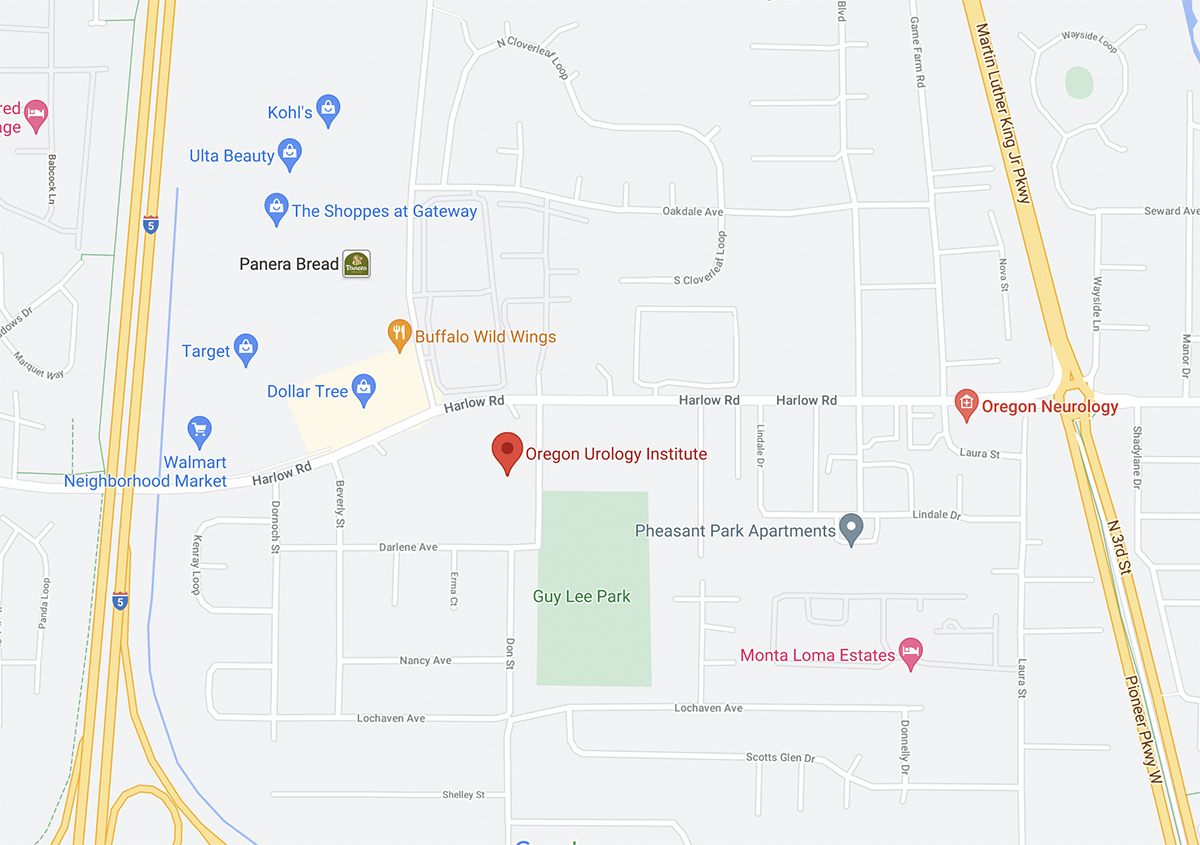PROSTATE CANCER SCREENING

KNOWING IS BETTER
THAN NOT KNOWING
Oregon Urology Institute believes prostate cancer screening is necessary and can be done safely, intelligently, and efficiently. Since the introduction of PSA screening there has been a decrease in the mortality rate of prostate cancer from 54,000 to 28,000 men per year and the 10 year survival rate has increased from 53% to over 97%. While some men may endure the morbidity of prostate cancer treatment and ultimately die of other causes, many men will benefit from therapy and a prostate exam will save their lives.
The current American Urological Association guidelines acknowledge the importance of selective screening, particularly in men between the ages of 55 to 69 years old. Furthermore, they acknowledge that African American men or those with a family history of prostate cancer are populations that may benefit from an earlier prostate exam. The American Urology Association has stated that PSA screening deserves “shared decision-making” and “proceeding based on a man’s values and preferences”. These guidelines don’t say stop PSA screening, in fact just the opposite. The message is to screen appropriately – something we feel is already happening at Oregon Urology Institute.
Oregon Urology Institute suggests men have a baseline PSA test in their 40s; begin regular screening at age 50 based on intervals determined by individual risk factors; and continue screening regardless of age if life expectancy is at least ten years.
Every man is different, and at Oregon Urology Institute we feel these guidelines best reflect the need to cater to every patient’s unique situation. Some men who test positive for prostate cancer may never develop a life-threatening disease or need treatment. But for those whose tests indicate an aggressive cancer, early detection through screening can mean the difference between dying with prostate cancer and dying of prostate cancer.
A prostate exam is an important tool that helps men make informed decisions about their health and care; it isn’t a commitment to have a biopsy or receive treatment. Knowing is better than not knowing.

PROSTATE EXAM
SCREENING RECOMMENDATIONS







